Suai
Carminda Dou
Carminda Dou
Carminda Dou
Born in Tilomar, East-Timor, Drafted year: 1942, 16y/o estimates, for 3 years
Suddenly began to count ‘イチ、ニ、サン(1, 2, 3)’ in Japanese.
The family tells her to continue talking,
but she no longer speaks.
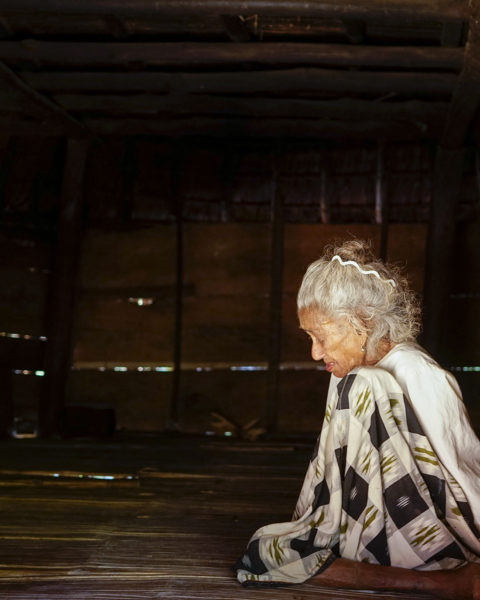
With a crooked back and small appearance, the victim looked over 90 years old.
Having Alzheimer’s for a long time, her memories were gone and it was difficult to carry out even a normal conversation.
Luckily, I was able to hear some of her story from her younger sister Martina, who was also living with her.
Though they were sisters, they had grown up in different places since they shared the same mother, but had different fathers.
Around when the Japanese troops came in, the two sisters were both taken away at a similar time, but were unable to hear from each other.
According to the younger sister, the Japanese army made their way towards her sister’s place, where they forced her away. Then for 3 years before the war ended, she was forced under sexual slavery.
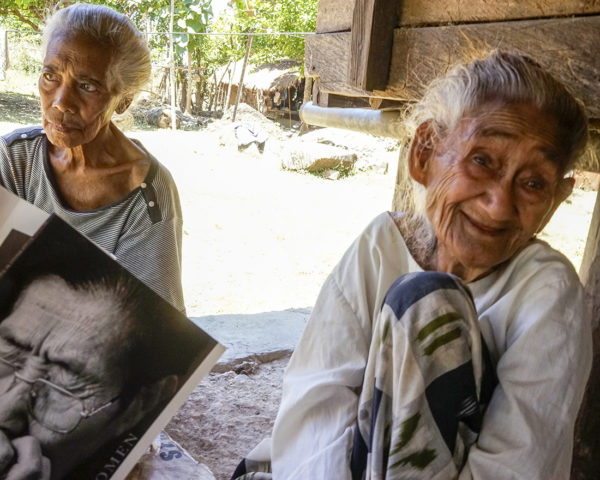
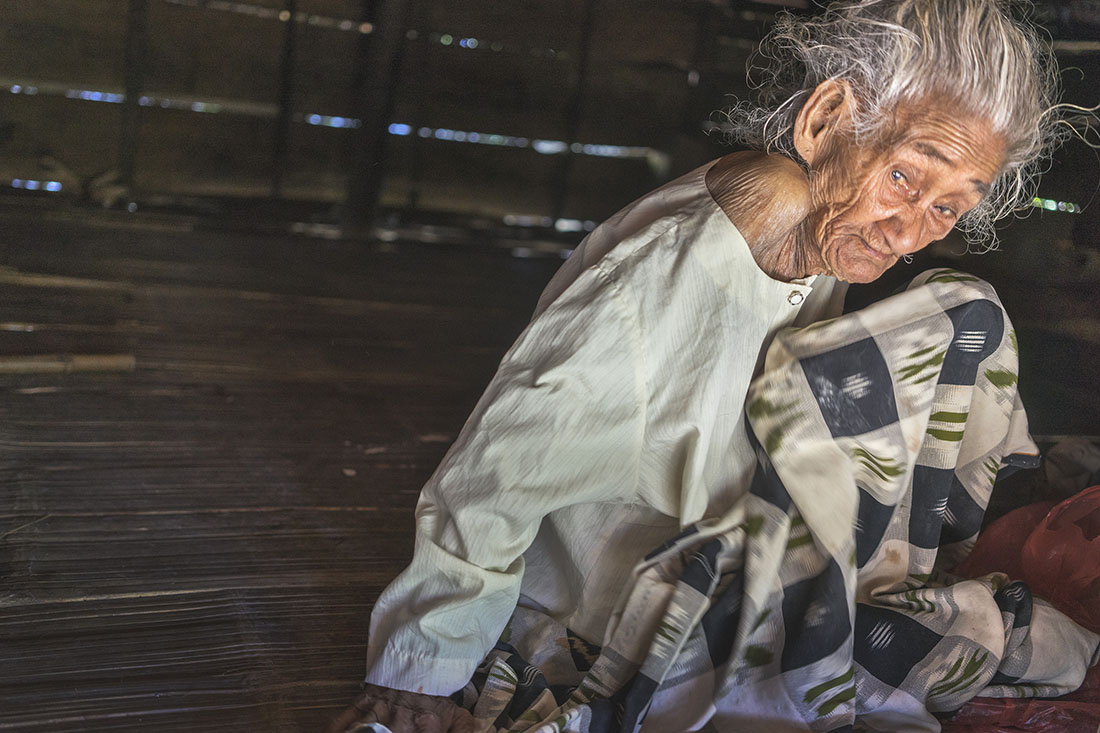
Throughout the interview, the elder sister sat next to her sibling and simply smiled. In the middle, she suddenly began to count ‘イチ、ニ、サン(1, 2, 3)’ in Japanese. The family tells her to continue talking, but she no longer speaks.
As her sibling begins to tell of the atrocities of the Japanese troops, the older sister’s smiling face begins to contort. The victim has already lost so many memories, but she cannot erase the pain that remains in her heart.
The sisters were 4 years apart in age, making it possible to reason that the elder sibling was born around 1926.
* With a high door sill and small entrance, the house was difficult for me to even enter. I was worried about the grandma, who had difficulty walking, moving around this dangerous area. Light was unable to properly enter as everywhere was sealed, but she spends her days eating and resting in her room.
Laurinda Dapuhalek
Laurinda Dapuhalek
Laurinda Dapuhalek
Born in Beco, East-Timor, Drafted year: 1942, 12y/o, for 3 years
The soldiers called me
'Tazuko' instead of my real name.
They fed me, but didn’t pay me at all.
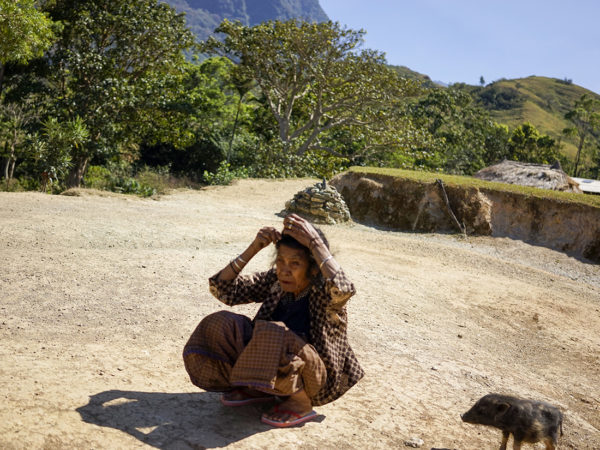
I don’t remember exactly how old I am. When I was young, I lived with my parents and two older sisters. One day, Japanese soldiers came into our village as they were making roads.
They captured all the pretty girls while shooting their guns. I was about 12 years old then. My two sisters were not taken because they were married.
They didn’t make me work. There were many soldiers but we were the only two women. I slept with many soldiers every day. There was a doctor who examined me. I never became seriously ill, and he gave me medicine when I was sick or had a fever.
The Japanese soldier put a tattoo on my arm. It said '多鶴子' and 'JAPON ... ', and I didn’t know what that meant at the time.
The soldiers called me 'Tazuko' instead of my real name. They fed me, but didn’t pay me at all.
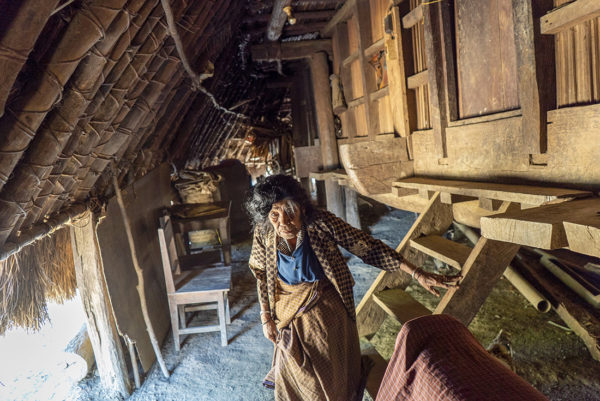
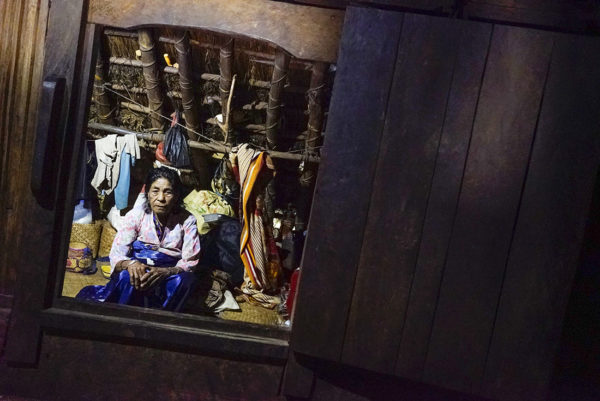
I was released after 3 years when the war ended. When I think about back then, I feel bad and I get headache.
Someone of high status in Japan should come and see it.
My old heart hurts and they have to compensate. I wish they give me money and clothes.
* She lives 200 kilometers from Dili, and it took us over 10 hours by car to get there. She lives in upstairs of a traditional, tall house where she keeps livestock such as pigs and chickens downstairs. The house is dark because there’s no electricity. Recently, there has been some foundation work to build a house with cement near this house.
Martina Madeira Hoar
Martina Madeira Hoar
Martina Madeira Hoar
Born in Casabauk, East-Timor, Drafted year: 1942, 12y/o, for 3 years
I was about 12 years old,
and there were lots of young women.
I was a Japanese soldier’s wife.
A lot of soldiers came every day.
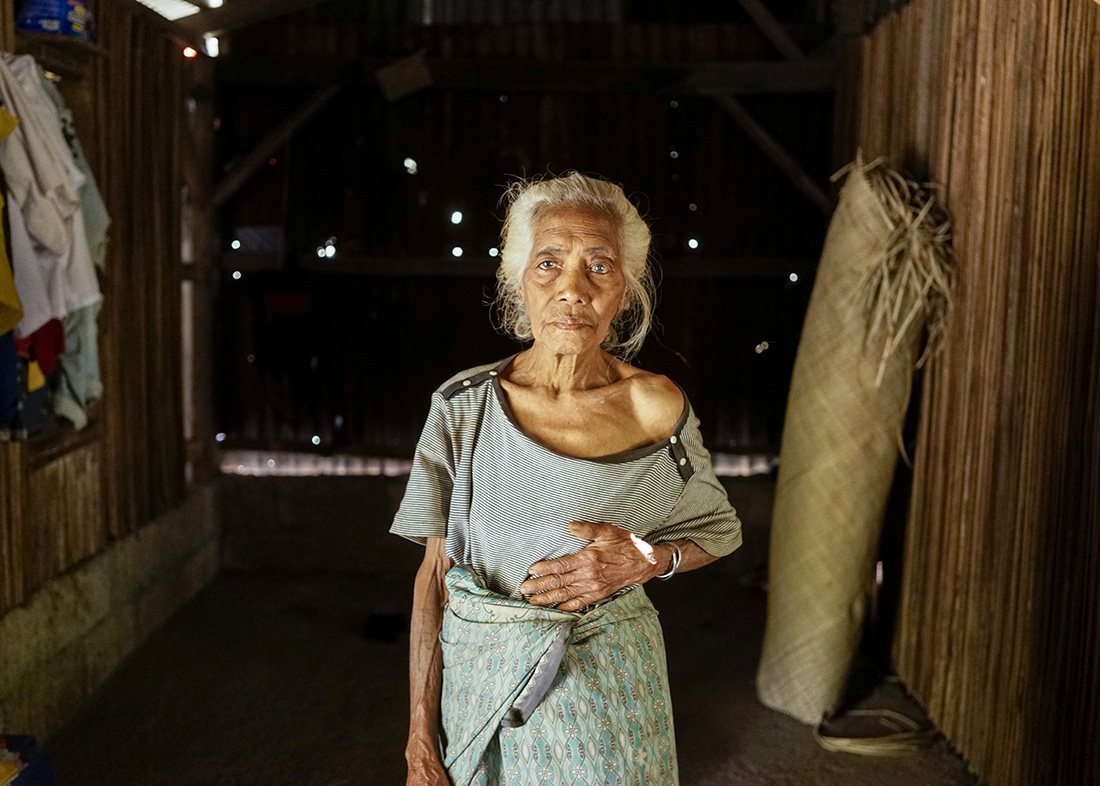
My parents were farmers. I was home alone when the Japanese soldiers came. I ran away out of fear. Meanwhile, my parents came back and they caught my parents. They made threats to take me away which they did immediately.
I was about 12 years old, and there were lots of young women. I was a Japanese soldier’s wife. A lot of soldiers came every day.
They did not hit me. I stayed there for 1 year like that before they told to me to go home.
After returning home, Japanese soldiers would come from time to time and ask for me. When my parents refused, they were beaten up and I was taken away. I had to go because they would beat my parents if I didn’t.
There was no doctor, no treatment and no medicine even if I got sick. They only fed me. I was released two years later when the war ended.
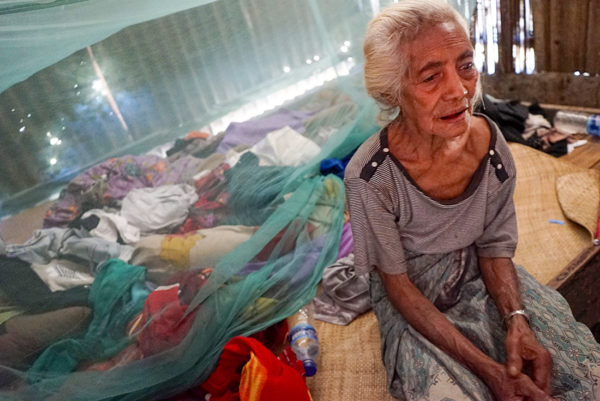

I don’t know when my sister was taken. I found out about it later. We were living apart because we had different fathers. I only heard about it after we started living together. I got married but I have no children.
When I look back what happened at the time, I get a headache. I have back pain and cough a lot. I wish I could fix the old house.
* She met her sister in 1975 and has been living with her in their relative's house since then. She is reluctant to talk about her past in front of other family members. It probably was extremely difficult for her to show her pain to a stranger who is also a foreigner, she said she was a Japanese soldier’s wife, to describe what she went through.
Fransisca Marcedu
Fransisca Marcedu
Fransisca Marcedu
Born in Suai, East-Timor, Drafted year: 1942, 19y/o, for 3 years
Japanese soldiers called me Tomikoトミコ.
They never gave me any money or medicine.
I was just like a horse or a dog.
What I’m saying is all true.
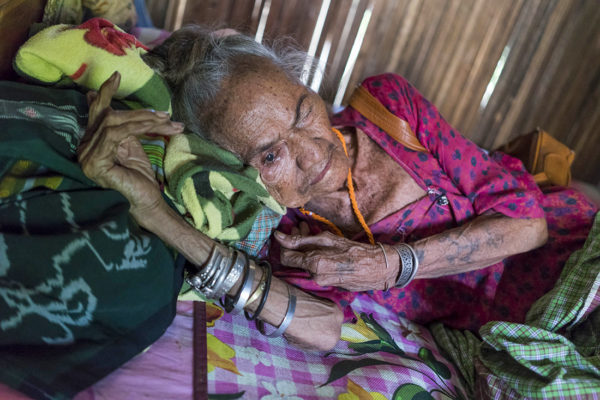
I don’t know when it was, but Japanese soldiers came and asked my parents for me. I said that I didn’t want to go, but the soldiers forced me away.
From the morning till the evening, different soldiers constantly came in. When one was done, the other immediately came. I had to do it, because they said they would kill my parents if I didn’t obey.
Japanese soldiers called me Tomikoトミコ.
They never gave me any money or medicine. I was just like a horse or a dog. What I’m saying is all true. My meal was corn, instead of rice. I was with two other girls named Dafumako and Dou.
I hadn’t started my period before I went there, but after a year it began. I was there for about three years. The Japanese soldiers went home so I was able to come home, too.
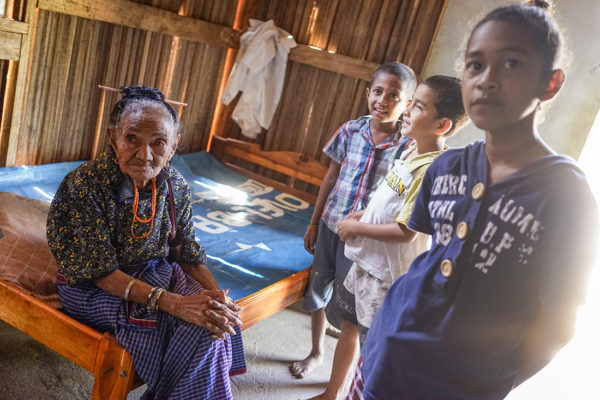
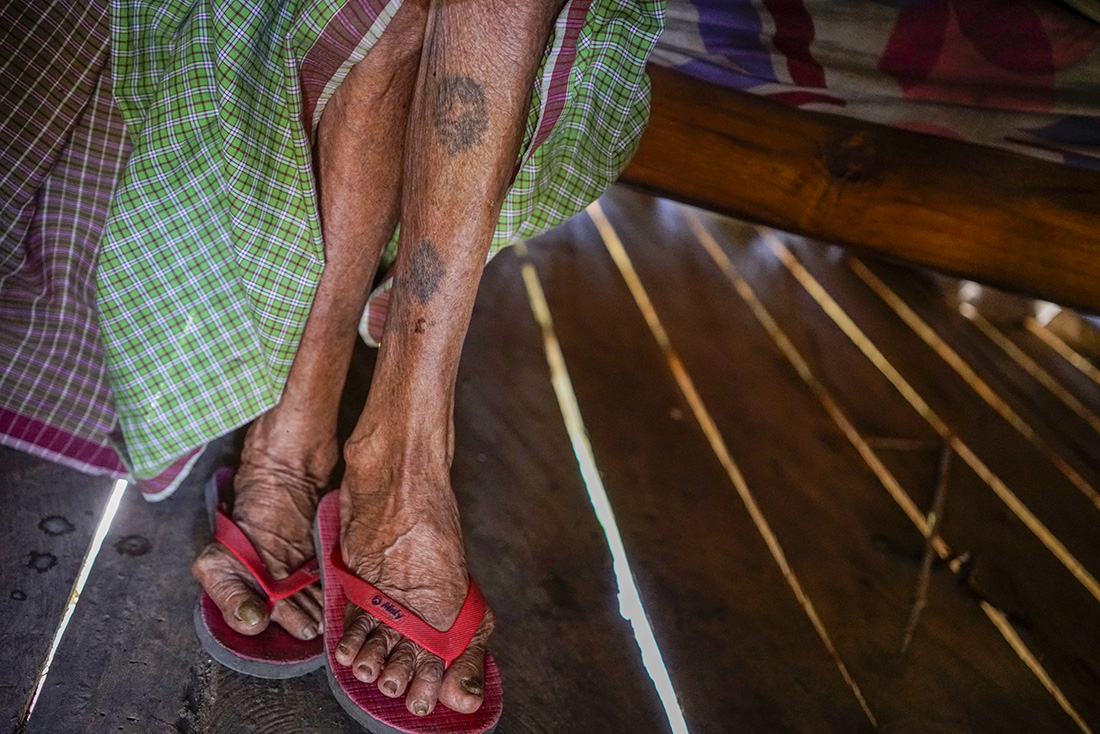
When I think about those days, I get headaches. The tattoos on my arms and legs were done by a Japanese soldier. He asked me to get tattoos first when he was with me in the comfort station. I don’t remember what it said. (The writing is blurred. Only the pattern is visible.)
* She was able to have a conversation with me in 2014 but now she doesn’t remember me. Conversation is nearly impossible now. She cannot leave the room without help. She always carries a large leather-looking bag like a treasure. It contains the things she needs, such as hair combs and betel nut.
